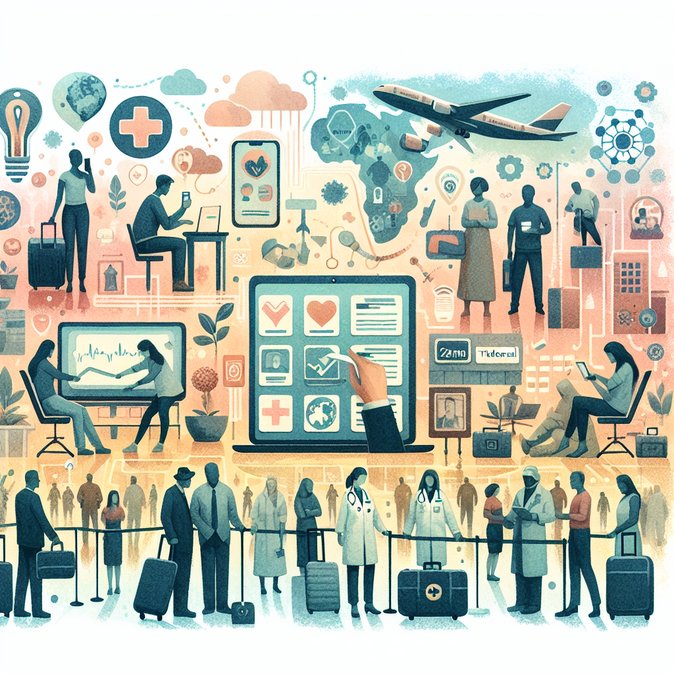
Brazil’s Ministry of Health has released the first operational bulletin from the Centro Integrado de Operações Conjuntas em Saúde (CIOCS), the multi-agency medical hub established in Belém for COP30. Between 3 and 7 November the facility handled 132 cases—mostly influenza-like illnesses (37 percent), dehydration (24 percent) and minor trauma (18 percent). Although no severe incidents were reported, officials say the data confirm the importance of proactive medical screening and rapid response for mass-participation events.
CIOCS brings together federal, state and municipal health teams, the National Sanitary Surveillance Agency (Anvisa) and the Armed Forces’ medical corps. It operates a 24/7 telemedicine platform capable of triaging up to 400 requests per day in Portuguese, English and Spanish. Delegations have been advised to download the ‘Saúde COP30’ app, which lets travellers upload vaccination certificates—including yellow-fever and COVID-19 boosters—before arrival, streamlining checks at the Blue Zone entrance.
![Brazilian health authorities treat first 132 patients at COP30 medical hub; issue travel-health guidance]()
For international visitors, the ministry recommends carrying a personal supply of over-the-counter cold remedies, staying hydrated in Belém’s equatorial climate and using accredited ride-hailing or shuttle services to reach the three designated urgent-care posts. Corporate travel teams should review insurance coverage to ensure it includes teleconsultation and medical evacuation within Brazil; air-ambulance corridors have been pre-cleared with the Air Force for transfers to tertiary hospitals in Manaus or São Paulo if required.
The bulletin also highlights enhanced airport-health surveillance: Anvisa has doubled the number of thermal-camera gates at Val-de-Cans airport and activated fast-track quarantine protocols should any delegate test positive for a Category-A transmissible disease. For now, officials say infection rates are within expected seasonal ranges, but they will publish daily updates so that event organisers and mobility managers can adjust risk assessments in real time.
Looking beyond COP30, CIOCS is intended as a permanent rapid-deployment unit for future mega-events in Brazil, providing a template for integrating tele-health, field clinics and cross-border information-sharing—elements increasingly demanded by multinational firms when assigning staff abroad.
CIOCS brings together federal, state and municipal health teams, the National Sanitary Surveillance Agency (Anvisa) and the Armed Forces’ medical corps. It operates a 24/7 telemedicine platform capable of triaging up to 400 requests per day in Portuguese, English and Spanish. Delegations have been advised to download the ‘Saúde COP30’ app, which lets travellers upload vaccination certificates—including yellow-fever and COVID-19 boosters—before arrival, streamlining checks at the Blue Zone entrance.

For international visitors, the ministry recommends carrying a personal supply of over-the-counter cold remedies, staying hydrated in Belém’s equatorial climate and using accredited ride-hailing or shuttle services to reach the three designated urgent-care posts. Corporate travel teams should review insurance coverage to ensure it includes teleconsultation and medical evacuation within Brazil; air-ambulance corridors have been pre-cleared with the Air Force for transfers to tertiary hospitals in Manaus or São Paulo if required.
The bulletin also highlights enhanced airport-health surveillance: Anvisa has doubled the number of thermal-camera gates at Val-de-Cans airport and activated fast-track quarantine protocols should any delegate test positive for a Category-A transmissible disease. For now, officials say infection rates are within expected seasonal ranges, but they will publish daily updates so that event organisers and mobility managers can adjust risk assessments in real time.
Looking beyond COP30, CIOCS is intended as a permanent rapid-deployment unit for future mega-events in Brazil, providing a template for integrating tele-health, field clinics and cross-border information-sharing—elements increasingly demanded by multinational firms when assigning staff abroad.






